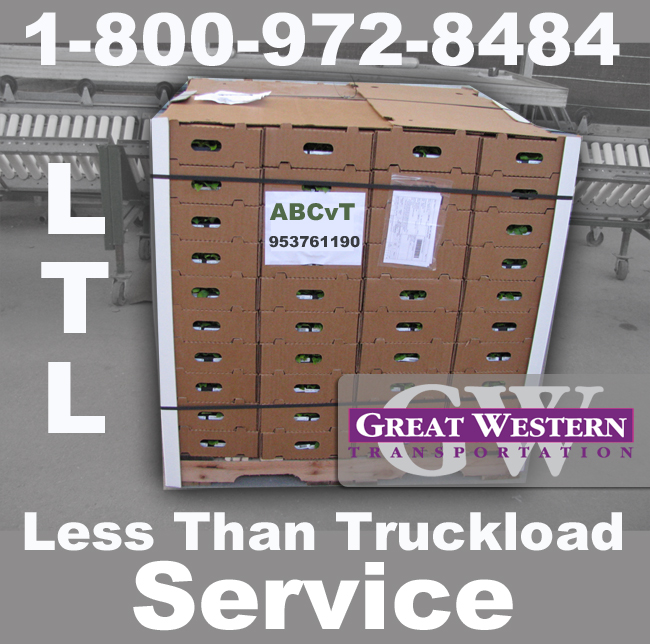Less than Truckload (LTL) shipping is the hauling of cargo or freight that takes up less space than a full truckload and typically weighs between 150 lbs and 20,000 lbs. The alternatives to LTL hauling are parcel carriers or full truckload shipping or truckload companies.
Package delivery or parcel carriers usually handle smaller packages and freight that can be broken down to units weighting less than 150 lbs.
Full truckload companies move freight that is loaded onto a semi-trailer or dry van. Semi trailers are typically between 26ft to 53ft in length and thereby require a large amount of cargo or freight to make this transportation economically feasible.
Less than truckload companies collect freight from various shippers and consolidate that freight onto trailers for hauling to the final delivering terminal or to a hub terminal where the freight will be further sorted and consolidated for additional hauling.
An LTL shipment may be handled only once while in transit, or it may be handled several times before the final delivery location is reached.
If the freight must be sorted and routed more than once, or if more than one haul is required for transportation to the delivering terminal, then the transit time will be longer.
In some instances the LTL freight can take up to 10 days for delivery, but in most cases the delivery time is far less.
Also, delivery to rural or remote areas will almost always add days to the transit time.
The main advantage to using an LTL carrier is that a shipment may be transported for a fraction of the cost of hiring an entire truck and trailer for the shipment.
Also, a number of accessorial (optional) services are available from LTL carriers, which are not typically offered by FTL carriers. These accessorial (optional) services include lift gate or rail gate service at pickup or delivery, inside delivery, notification prior to delivery, freeze protection, and several others. These services are usually billed at a predetermined fixed rate or for a weight based surcharge calculated per pound or per hundredweight.
Less Than Truckload shipping versus Parcel shipping
A parcel carrier traditionally only handles pieces weighing less than approximately 150 lbs. Parcel carriers will attempt to compete with LTL companies by convincing shippers to break larger shipments down into smaller packages. Parcel carriers typically refer to multi piece shipments as “Hundredweight” shipments since the rating is based on 100 lbs. The Hundredweight rate is multiplied by the shipment’s weight and then divided by 100 and then rounded up to the nearest hundredth.
LTL carriers prefer to handle shipments with the smallest amount of handling units (ie: pallets or crates) that is possible. LTL carriers prefer a shipment of 1 pallet containing 100 boxes that are shrink-wrapped to form one load, rather than 100 individual packages. This reduces handling costs and the risk of damage during transit. Typically, the per pound rates of LTL carriers are less than the per pound rates of parcel carriers.
The Great Western Transportation LTL freight service has consistent availability to handle your freight shipments.
Your advantage in utilizing Great Western Transportation LTL services is the cost savings you and your company will realize, since multiple shipments are being hauled from multiple shippers on a single dry van, flatbed trailer or refrigerated trailer. Therefore, each shipper pays a fraction of the cost of utilizing the truck and trailer.






